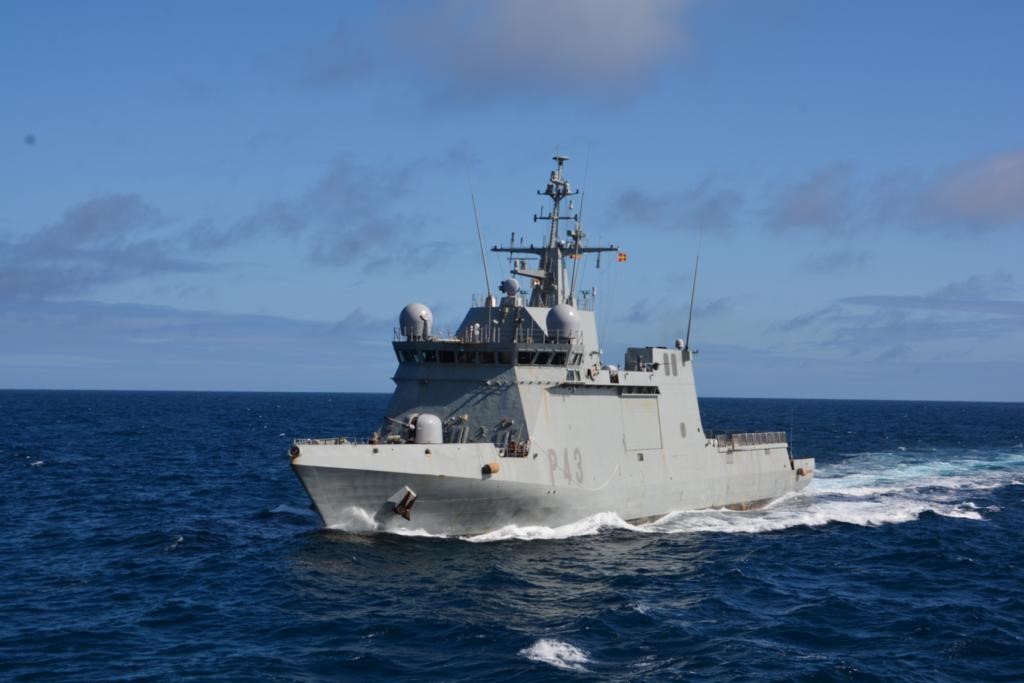
Offshore patrol vessel 'Relámpago' set sail to join the standing surveillance and deterrence operations
- The Navy vessel will conduct a maritime surveillance patrol in the Canary Islands waters during June
Offshore patrol boat 'Relámpago' set sail from its home port in Las Palmas de Gran Canaria, as part of the Maritime Operational Command (MOM in Spanish) under the operational control of the Operations Command (MOPS in Spanish), to conduct a maritime surveillance mission in the Canary Islands waters until the end of June.
Its main objective is guaranteeing the security of maritime areas of national interest and jurisdiction. The ship will carry out various activities related to the knowledge of the maritime environment, including verification and control of maritime traffic, supervision of fishing activity and protection of the most important maritime lines of communication in the area, in coordination with the Maritime Action Operations and Surveillance Center (COVAM in Spanish).
Maritime Operational Command MOM
The Maritime Operational Command (MOM) is the body within the operational structure of the Armed Forces, subordinated to the Chief of Defence Staff, responsible for planning, conducting and monitoring surveillance and security operations in maritime areas of sovereignty, responsibility and national interest. It is under the command of the Admiral for Maritime Action (ALMART in Spanish) based in Cartagena.
Armed Forces’ Standing Operations
Standing Operations are an effective tool for maintaining surveillance of sovereign spaces, enabling early threat detection and enabling an immediate and effective response to a potential crisis.
The traditional Land Operational Command (MOT), Maritime (MOM), Aerospace (MOA) and the recently established Cyberspace (MOC) make up the Standing Command structure. On a daily basis, about 3,000 Armed Forces personnel are involved in permanent operations, under the operational control of the Operations Command.
BAM 'Relampago' (P-43)
The Offshore patrol vessel 'Relámpago' is the third 'Meteoro' class vessel. Its homeport is the Arsenal of Las Palmas (Las Palmas de Gran Canaria). The ship was launched on October 6th, 2010 and came into service on February 6th 2012. It is been deployed three times in Operation 'ATALANTA', in the Indian Ocean, in support of the World Food Programme and in several national and international exercises.
Offshore patrol vessel (OPV) are designed to carry out maritime security missions, protection of national maritime interests and control of areas of sovereignty and national interest, as well as maritime police missions, in collaboration with State Security Forces and Corps at sea, such as operations against drug trafficking or terrorism. In addition to these, they also carry out missions of control and protection of maritime traffic surveillance and control of fishing and fight against maritime pollution.
Fotos


